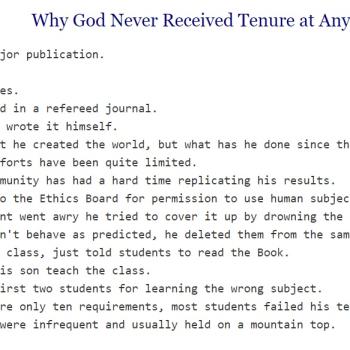When I shared a post and meme about the classic notion of the academic in an ivory tower recently, I also shared on Facebook some of my own experience that led to my change of perspective. Here is what I wrote:
In my own teaching experience, several things helped me shift away from the classic model of the “disinterested” researcher and “impartial” classroom moderator. One was the recognition that, in the interest of being non-partisan, I was staying silent about unjust structures that negatively impacted colleagues and students. Another was the recognition that even in asking students to consider evidence that might lead them to revise their views, there were values and commitments that I was advocating – to a particular approach to religion, one that is not shielded from but responds positively to new (or in some cases quite old) information. The academic who stays isolated in an ivory tower is not impartial in a positive sense, but is most likely contributing to injustice through silence and disengagement.
Both of those realizations – that I was not genuinely keeping my own values out of the classroom, and that hiding my own views was leaving others to experience oppression without allies – jolted me into a different approach, one of engaged scholarship. Had I not had that experience, I might not have spoken here publicly about so many issues in the way that I have. There is still a place for seeking to be honest and let the evidence determine our views rather than vice versa. That element of the academic endeavor remains valid – so long as we do not pretend that doing so is not itself an expression of certain ethical commitments and values. And precisely because of our commitment to that approach, we can be activists without hopefully being ideologues.
In other words: It is possible to be both open-minded, and to passionately work for justice. One is not forced to choose one or the other.













